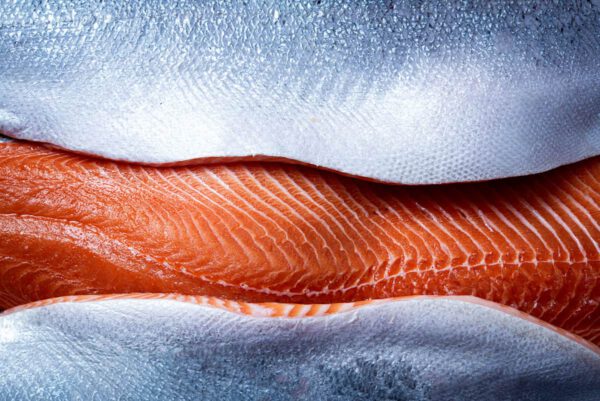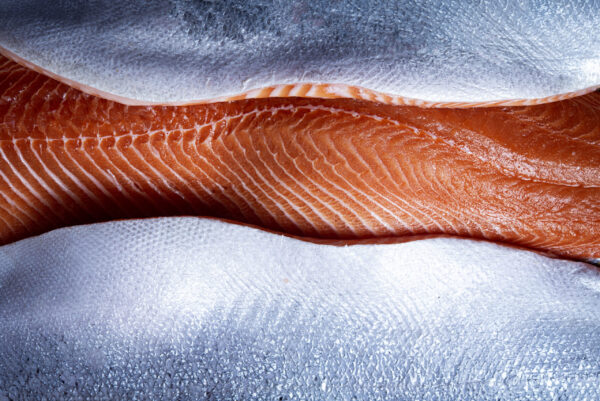
Didn't find what you were looking for?
We have a number of attractive offers for you

Most of us are already aware that the high nutritional value of fresh fish is a great way to balance our diets. As a component of our routine, nutritional menu, fresh fish is not only tasty but provides multiple benefits for our health too. Even if we haven’t said anything you didn’t already know, it’s important to emphasize, and be aware of the sources, the data, and the facts behind the health and nutritional advantages of eating fish! Read more below about some of the outstanding health advantages in eating fish:
A quality source of protein
The recommended protein consumption for an adult is 65-100 grams per day. In 100 grams of fresh fish, there are 21 grams of protein, providing close to 1/3 of the recommended daily protein intake. Fresh fish is rich in protein, vitamins, and minerals, and alternately, are low in sodium. The World Health The organization recommends including at least two portions of fish per week in your nutritional menu. Protein from fish is low in mercury and does not contain metals or chemicals, which should be avoided particularly in children’s food.
Low levels of saturated fats
Protein from fish is low in mercury and does not contain metals or chemicals, which should be avoided particularly in children’s food. תחום בריכות הדגים בישראל מציע מגוון רב של דגים ומספק כ – 15 אלף טון דגים איכותיים בשנה. אחד הדגים האהובים והפופולריים בישראל הינו דג הבס שהשתלב בתפריט המקומי באופן מהיר וחלק ומקורו בצפון אמריקה. דגים טריים ובמיוחד דג הבס הינם איכותיים ומכילים מעט עצמות באופן יחסי ולכן הם נוחים וידידותיים לאכילה. הדג הינו מקור לחלבון, וויטמין E, יוד ומגנזיום ומכיל 2 גרם של שומן רווי בלבד ו – 150 קלוריות, משום כך, תפריט עשיר בדגים נחשב לדיאטטי, מאוזן ובריא.
A source of vital minerals and Omega 3
Fresh fish grown in ponds do not contain mercury and therefore are safe and beneficial during pregnancy. Fresh fish provide an abundance of advantages for pregnant women due to their high protein content and other vital, nutritional components, essential to the proper development of the respiratory system and the brain of the fetus. Fish contain Omega 3, a type of fatty acid, as well as iron and iodine which are important nutritional components for the development of the fetus. Fresh fish contain approx. 500 mg of Omega 3, providing the recommended daily consumption of this fatty acid.
Vitamin D
One of the fish most identified with Israel is tilapia or Saint Peter’s fish. Tilapia is rich in vitamin D which is essential to maintaining the proper balance of calcium and phosphorous in the body. Tilapia contains three times the recommended amount of vitamin D for weekly consumption. Eating a filet of tilapia once a week provides us with more than the recommended amount of vitamin D, which many Israelis lack, particularly during the winter. Consumption of fish makes a major contribution to strengthening bones, reducing threats of fractures, protection of the respiratory system against infection, improved cognitive performance, reduced threats of depression and stroke, and reduced sensitivities to various pains.
Prevention of heart disease
Fish contain protein and Omega 3, important for protecting our health and preventing disease. Omega 3 plays a major role in the development and functioning of the brain from the stage of pregnancy through old age. The healthy, fatty acids help prevent heart disease, arthritis, cancer and contribute to alleviating attention deficit disorders. *Waiver: Please note that we are pleased to summarize and present general health and nutritional information regarding the benefits of fish as a major component of your diet, however, this should in no way be considered medical advice nor replacement for consultation with a doctor.
References:
11 health reasons to eat fish – and not just on Rosh Hashanah
*Waiver: Please note that we are pleased to summarize and present general health and nutritional information regarding the benefits of fish as a major component of your diet, however, this should in no way be considered medical advice nor a replacement for consultation with a doctor.
The articles are not a medical recommendation. The responsibility is on the reader only.
* It is recommended to consult a qualified person.
שדות חובה מסומנים ב *






* התמונות להמחשה בלבד
Required fields are marked with *
Register on the website and you will enjoy saving and viewing previous orders, saving personal details for making deliveries and saving the credit card securely for a faster and more convenient purchase.






* Images are for illustration only

We have a number of attractive offers for you
Interested in enjoying special offers and exclusive benefits? Join David Dagim's customer club today and enjoy benefits.
Required fields are marked with *